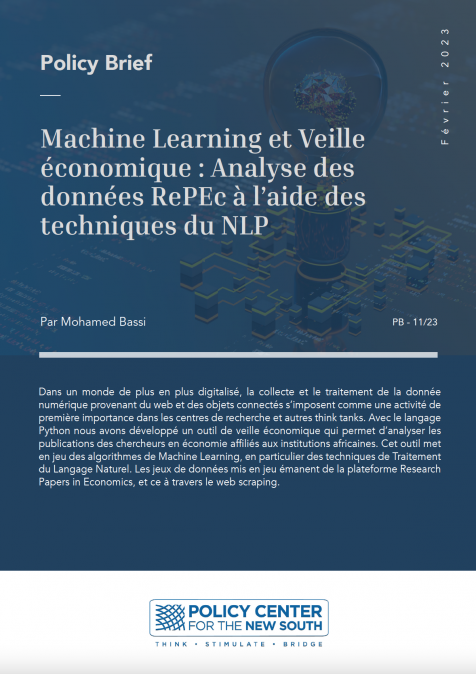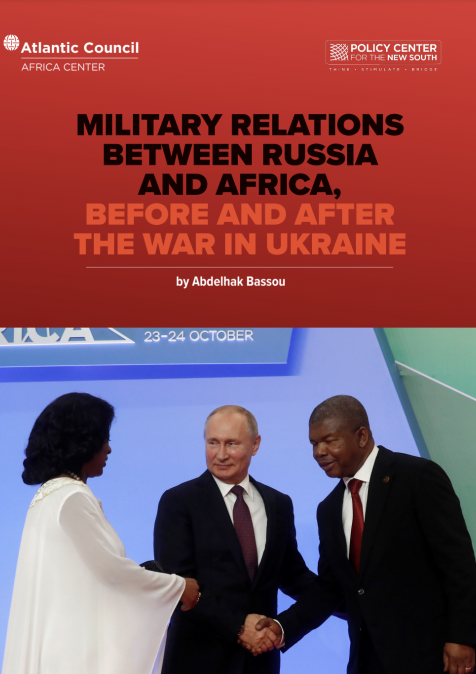RELATED CONTENT
-
 AuthorsFebruary 28, 2023This publication was originally published on https://www.euromesco.net/ The Moroccan job market offers few opportunities for young non-educated Moroccans. With the rise of the internet, many Moroccans sought to find new ways to generate an income and find financial stability. During the COVID-19 pandemic, we have seen a rise of Moroccan entrepreneurs in e-commerce and dropshipping and a dramatic increase of motivational and educational content that aims at encouraging more peopl ...
AuthorsFebruary 28, 2023This publication was originally published on https://www.euromesco.net/ The Moroccan job market offers few opportunities for young non-educated Moroccans. With the rise of the internet, many Moroccans sought to find new ways to generate an income and find financial stability. During the COVID-19 pandemic, we have seen a rise of Moroccan entrepreneurs in e-commerce and dropshipping and a dramatic increase of motivational and educational content that aims at encouraging more peopl ... -
AuthorsMohamed BassiFebruary 28, 2023Dans un monde de plus en plus digitalisé, la collecte et le traitement de la donnée numérique provenant du web et des objets connectés s’imposent comme une activité de première importance dans les centres de recherche et autres think tanks. Avec le langage Python nous avons développé un outil de veille économique qui permet d’analyser les publications des chercheurs en économie affiliés aux institutions africaines. Cet outil met en jeu des algorithmes de Machine Learning, ...
-
February 27, 2023In this interview recorded during the Atlantic Dialogues, Mr. Helmut Sorge, Columnist at the PCNS interviews Mr. Masood Ahmed, President of the Center for Global Development about his insights on Globalization between yesterday and tomorrow. In fact, although the process of linking coun...
-
February 25, 2023Dans cette interview tournée au cours des Atlantic Dialogues, Monsieur Helmut Sorge interroge le Ministre Hubert Védrine sur ses impressions sur un monde aussi troublé qu’aujourd’hui suite à la guerre Russo-Ukrainienne. Monsieur Védrine nous fait part de son analyse ainsi que son étude ...
-
AuthorsFebruary 24, 2023Mauritius was on the brink of disintegration in the 1980s, but by 2019 had managed a peaceful transformation from a low income, monocrop, inward-oriented economy to a diversified, outward-oriented, upper middle-income country. Mauritius is now again at a crossroads, having to adapt to accelerating climate change and the impacts of multiple crises. The government of Mauritius has a vision of transforming the country into a knowledge-intensive and inclusive economy of the Fourth Indu ...
-
Sabrine Emran & Filippo FasuloFebruary 24, 2023The relationship between the US and China continues to be complex and multi-faceted. While both countries have a strong economic and political influence at the global level, some argue th ...
-
AuthorsFebruary 24, 2023In a recent telephone conversation, Russian President Vladimir Putin officially invited Assimi Goïta, the military chief of the transition in Mali, to take part in the second Russia-Africa summit to be held in Saint Petersburg. This summit is scheduled for July 2023, according to Mikhail Bogdanov, the special representative of the president of Russia to the Middle East and Africa and deputy foreign minister. Russia is openly optimistic that several African leaders will attend the pl ...
-
February 23, 2023In this video recorded during the Atlantic Dialogues, our Columnist Mr. Helmut Sorge interviews Mr. Jorge Castañeda, Global Distinguished Professor of Political Science and Latin American Studies, New York University on the Situation of Migration in Mexico and the United States, Mr. Ca...
-
Youssef Tobi & Rim BerahabFebruary 23, 2023Dans cet épisode, Rim Berahab expose la stratégie du Maroc dans l’implémentation de l’hydrogène vert comme solution pour la transition énergétique au Maroc et analyse l’implication de ces ...
-
February 23, 2023In this video recorded during the Atlantic Dialogues, our Columnist Mr. Helmut Sorge interviews Ms. Nusrat Farooq, Technology and Programs Associate, Global Internet Forum to Counterterrorism, Ms. Farooq tells us about how The Global Internet Forum is fighting violent extremism and terr...






